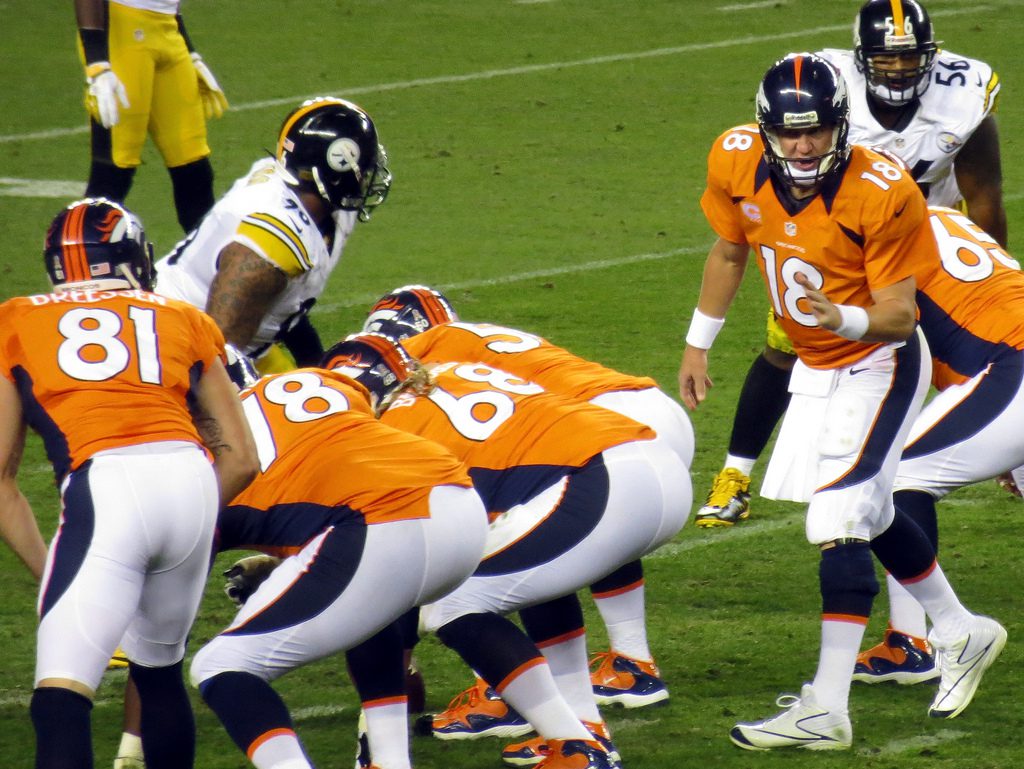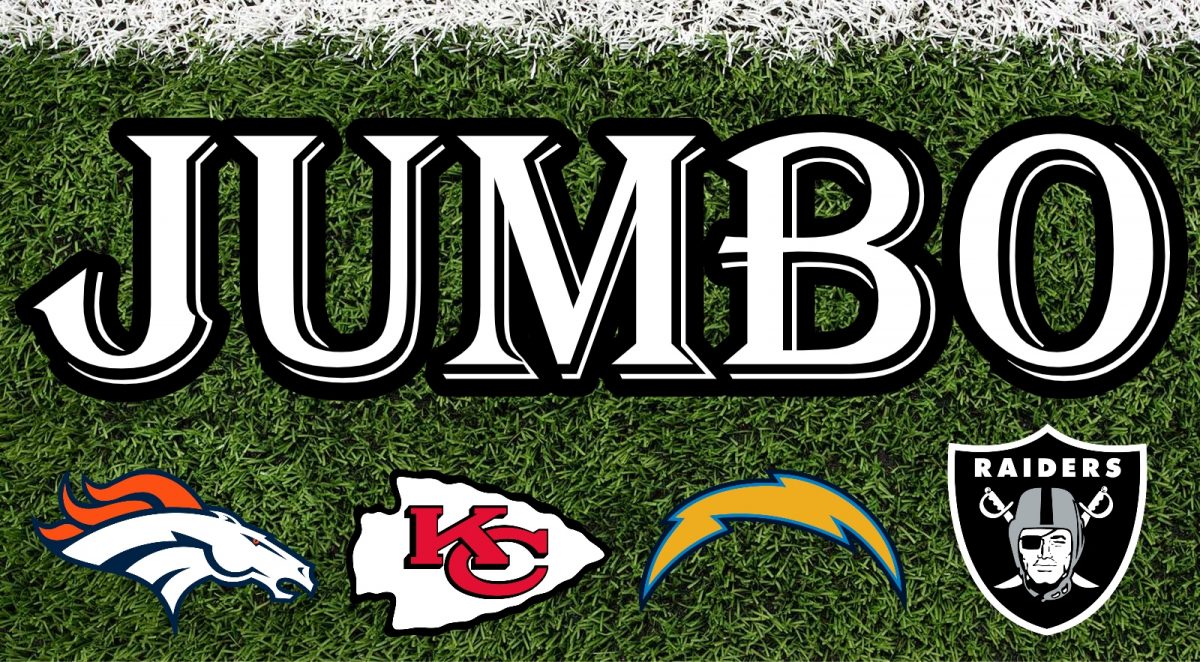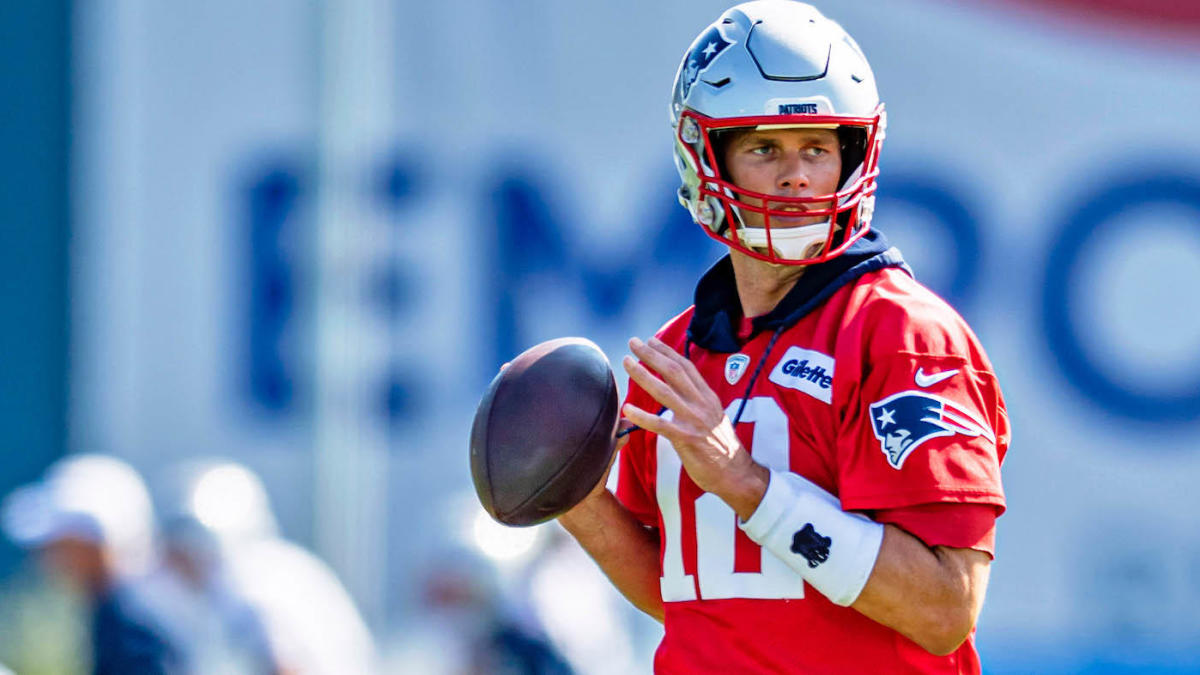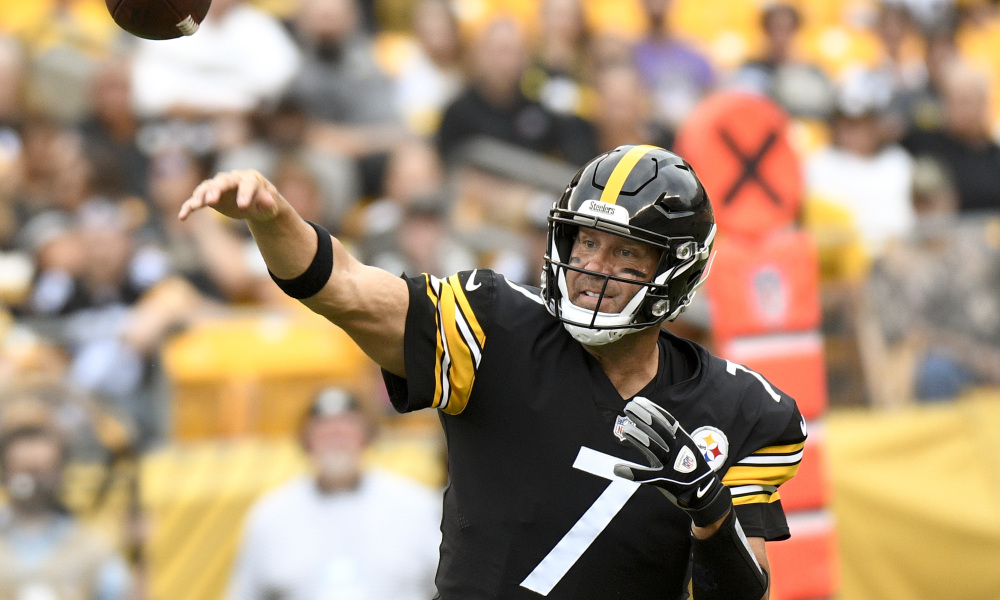
Image courtesy of Craig Hawkins/Flickr.
Growing up a basketball purist I was a bit late to the NFL party. I was committed exclusively to my sport of choice and had little to no interest in America’s pastime. This was the case up until I decided to immerse myself in sports media professionally. Albeit the lack of genuine intrigue, I knew better than to embark on a sports centered career without having an understanding of the most popular game in the country, so I joined a fantasy football league. From the moment I engaged in the first few minutes of a fantasy football draft, with a freshly cracked beer and my research strewn about, I could feel the NBA pureblood instantly tainted, and since that fateful evening I’ve been desperately hooked on it all. The addiction starts fast and grows strong so if this is your first year, prepare yourself to be taken on a ride, enjoy it to the maximum, and be CAREFUL HOW YOU DRAFT.
Before we get into the specifics of what’s most important regarding your upcoming draft day, let’s take a moment to quiet the fantasy bullies who tirelessly try and intimidate beginners with unnecessary jargon and varying rules and parameters. Yes, there are different league styles. And yes, there are different scoring types, but most people stick to the simpler systems and in my opinion, aside from being easier to manage, they’re much more fun to play in and be a part of.
First things first: join a league and ask the commissioner what type of league it is that you’re in. This will essentially determine how you’re going to win, and how you’re going to gain points in which to do so. I recommend staying away from the “rotisserie” and “total points” style leagues as they’re not as common and take away from the spirit of competition fostered through weekly matchups. “Keeper/dynasty” leagues favor long-term members and aren’t beneficial for new additions as they allow veteran owners to retain previously used players the following year. This means guys like Tom Brady and Jimmy Graham will be locked up due to seniority, and hey, this isn’t a nine to five job, it’s fantasy, so do yourself a favor and don’t enter into a restricted zone if you don’t have to. The H2H or “head to head” style league is where you want to be, and is by far, the most commonly played type amongst fans. H2H pits different teams against one another in a weekly battle where the juxtaposing rosters go head-to-head in an effort to attain a greater number of cumulative points. There are different scoring systems that can be applied to H2H leagues but most commonly you’ll see standardized scoring used, which favors yards gained and touchdowns scored. Some H2H leagues incorporate a defensive element where the commissioner will make it mandatory that a certain number of defensive players are included in the roster. This will change the scoring in that those defensive players will be awarded points for sacks, picks, and defensive touchdowns. PPR or “points per reception” is an alternative style of scoring that can be applied to rosters either with or without defensive players. This system grants to the receiving player an actual point for the reception itself where as standardized scoring gives points only for yards gained and touchdowns scored. Because of this discrepancy, receivers and tight ends will often yield slightly more along with running backs that have the ability to get out in space and catch the ball. Now, although this is a bit different than a standardized scoring system, you’re still wanting to draft quality players at the wide receiver, tight end and running back positions, so it doesn’t matter all that much, at least in regard to how you’ll draft. The following information will be helpful for any H2H style league regardless of defensive additions or the PPR versus standardized scoring structure.
Let’s get started: Most new fantasy players generally fall somewhere between being a novice NFL spectator or a committed fan that’s finally giving into the illustrious fantasy lifestyle. Whether you think you know everything there is to know about football, or you don’t have a clue as to who a single player is, (other than the quarterback playing for the Cowboys) you need to do some research. Everyday happenings will affect your draft especially now that the preseason is well underway. Be cognizant of everything: injuries, trades, suspensions, locker room dramatics, off-the-field issues, on-the-field issues, schedule discrepancies, weather conditions, bye weeks, court cases… the list goes on and on. The point is, regardless of your previous NFL knowledge or lack thereof, drafting a fantasy team means investigation. You need to survey many different aspects of the players themselves, the teams they play for, as well as their respective franchises in an effort to figure out who can give you the best chance at consistent production without being especially susceptible to physical/personal issues that effect play/performance on the field. Let me be clear, there are elements of this game and of the human condition that no entity can control, but history, media coverage, and public relations are all great points of reference in determining the composition of your (hopefully) dangerous and effective roster. Statistics can be equally as beneficial as they are misleading and your friends don’t know as much as they say. Trust in your own findings and put in the time. Below are a few simple yet quintessential tips for championing your fantasy draft.
DO NOT AUTO DRAFT:
The draft is important. It calls for research and strategy and allows you to get a good feel for the opposing teams as they’re constructed in real time. You want to be involved in this process, as it will significantly affect the creation of your own squadron, even in the wake of adversity. Auto drafts generally don’t work out and take much of the pride and mysticism away from the experience. Even if the computer happens to produce winning results, you’ll end up being the “idiot guy” that won based on an auto draft, and while you may finish with some coin, your overall respect amongst the others will be little to none and you won’t benefit for future fantasy football slaughters. Auto drafters aren’t generally invited back to their respective former leagues, and even if they are, they’re known as that “idiot guy” that auto drafted the previous year. Don’t be that guy.
GET IT DOWN ON PAPER (Bye weeks, player health, schedules, 4th, 5th & 6th backups):
Whether you’re randomly selected to pick first in your snake draft or end up choosing last because the malicious commissioner in your league secretly wants you to fail, it won’t matter much because you’ll be prepared. List several player options on paper, a tablet, a computer, it doesn’t matter; just have the data ready with several contingency plans at each position. Be prepared to miss out: the guy you want the most will likely be chosen by the guy that goes before you. To paint a more concrete picture, let’s say you’re preparing your running back selections, we all know you have Adrian Peterson and LeSean McCoy at the top of your list, but the inevitable truth is that you’re not getting both, if any at all. These guys will be first, second, and third off the board in the first round so come prepared with other options. When selecting these other options, reference bye weeks and surrounding stars. For instance, I’m a fan of the two main running backs that play for Detroit and have them both marked down on my hypothetical list of prospects (two of about fifteen choices). Reggie Bush dominated last year and Joique Bell’s performance was solid. While Joique would be a clutch option at the flex, easily attainable in the later rounds, and Bush, who for the most part is always clutch, an easy favorite to play one of the starting running back slots, selecting more than one player from the Lions (particularly two at the same position) means that generally one of your guys will finish with high numbers and the other will not. This also means that both players will be sitting on the bench during their designated bye week. In regard to surrounding talent, it’s also worth noting that Calvin Johnson is ranked as this year’s number one fantasy receiver, finishing last season with 84 receptions, almost 1,500 yards and 12 touchdowns in the regular season. In case you didn’t know, he also plays for the Lions and will be getting his fair share of touches on the field.
Although it seems like a no-brainer to take the above factors into consideration, people tend to choose glamorously, picking shiny prospects in the heat of the moment, forgetting that individual production can be hindered greatly by the team’s other stars.
Bye week awareness is critical. Let’s just say that one is so insanely lucky to have miraculously drafted Peyton Manning, Julius Thomas, Calvin Johnson, Demaryius Thomas and Reggie Bush. It would seem like that particular individual now has first place in the bag, however, this same person will be without all five players during week nine and will most likely see little to no play time for these stars, prior to the postseason, if both teams are in good standing at the end of the year. If a playoff birth is clinched, most coaches will not risk injury by playing their starters for heavy minutes, if any at all, later into the regular season games.
When selecting your backup backups, if the numbers start to even out as far personal productivity, turn to the player’s quarterback to help make your decision: Does he trust in the pocket? Does he spread the defense creating opportunities for the run? Does he take it upon himself to win games on foot? Does he like the receiver that you’re thinking of drafting off the field? Is his defensive unit terrible? Quarterback play will be one of the most poignant indicators of who will be involved in the team’s offense. To highlight this notion, let’s take a look at Knowshon Moreno. His performance last year was slightly surprising and quite lucrative. I played the kid often, either at the running back or flex position and was rewarded with 241 carries, 1,038 total yards and 10 touchdowns. Now you’d think it’d be a no brainer to draft a guy this year that produced in such a way last season, but this really isn’t the case any longer. Moreno is now a member of the Miami Dolphins. The team has a decent quarterback with a powerful arm, but he ain’t no Peyton Manning and their locker room is nothing like that of Denver’s. There’s no way that Ryan Tannehill will prompt a defense to spread out so significantly like Manning, allowing potential run plays at a high percentage. And regardless of Miami’s open pledge to improve significantly in this department, the Dolphins finished with just eight rushing touchdowns last year and didn’t add enough pieces to open that number up for significant growth. Moreno may be beneficial on the bench, but his ranked status has dropped significantly since leaving the Broncos, Peyton Manning in particular.
While one can touch on several other aspects of what’s most important when drafting, I’d like to finish up with player health and team schedule. To show how significant both of these are, and how they somewhat go together, let me present to you one simple feature of the 2014 NFL schedule: overseas games. This year six NFL Teams, including the Jaguars, Cowboys, Lions, Falcons, Raiders and Miami Dolphins, will all be playing a regular season game in London. While six of the 32 NFL teams will have the opportunity to travel to Wembley Stadium in an effort to open up the NFL’s global market, this also means that six of the 32 rosters will have to take an international trip to a cold, rainy place while the other 26 teams will not. Extensive travel alone is enough to wear on anyone’s body and mind, and if one of your players has a preexisting injury or personal issue prior to the international match up, best believe they more than likely will not be making the journey. When considering the time difference, physical strain and elevation extremities, why would any organization want to send a struggling player to one of these three contests? The trip creates a much higher risk of further complicating physical and emotional problems and will either force an injured player to stay behind or inevitably add to the issues being experienced by them if they decide to attend. This simple aspect of the schedule can potentially leave you with benched players or exacerbated injuries, and while I’m not advising to avoid drafting any player on the six teams mentioned, the extreme traveling is something to be taken into consideration. Weather, touring, schedule and injuries: they all factor in to the bigger picture of individual player success.
STATS (Your greatest friend, your biggest enemy):
While it’s wildly important to look at individual numbers, you must also realize that with every dazzling statistic comes an opposite piece of information. The inverse of the initial figure may tell you more about the player being highlighted, than the positive stat initially entails: In 1923 Babe Ruth led the MLB with 41 home runs. That same year he also struck out 93 times. Sometimes intense production requires intense failure, and because fantasy football is fueled by single player performance, failure for the greater good of a team’s success doesn’t draw any benefits for a fantasy football owner. Read between the lines.
DO NOT TRUST YOUR FANTASY OPPONENTS:
Anytime the opposition proposes a trade, tip or small piece of advice, take it with a massive grain of salt. It’s never going to be better for you than it is for them. Period.
TRUST IN ESPN:
ESPN is king and their fantasy system rules. Why would anyone use any other platform to host the fantasy football party other than that of the world’s greatest sports authority? Don’t be stupid. Yahoo’s fantasy client is for the birds.
TRUST IN YOURSELF:
It sounds cliché as all hell, but it’s the realest piece of advice I have to offer. If you wake up Sunday morning and can’t help but feel as though you need to sit Brandon Marshall and sub in Golden Tate, DO IT. Well, maybe don’t do that, but you get the point. Throughout the course of my fantasy career, I cannot begin tell you how many times I’ve heard, “I knew I should’ve played him” or “I knew I should’ve sat him” and every time the sentiment is regrettable and genuine, especially when it’s come from the mouth on my very own face. Go with your gut and trust that it’s the right move.
There was once a time when I too was an inexperienced fantasy football rookie, co-managing teams and paining losses due to stupid moves made and bad advice absorbed. Thankfully I was able to put my college mindset to use and realize that with enough research and due diligence I could master anything on my own accord. Fast-forward to present day: I’m coming off of a first place victory from last year’s season while pioneering the commissionership of an executive league at the office. I have also been inducted into a senior fantasy club full of childhood buddies that’s allowing their first woman entry to date. All this action and I’m still contemplating joining a third, simply for the sake of being extreme (It’s not like I have a full time job and write towards achieving my dream career or anything on the side. I’m not busy at all.) In summation, everyone is capable of becoming a fantasy football master, and with a few helpful guides and pinch of good luck, anyone can attain championship status, even in their first year of participation. Go out and get it.
Good luck to you all and may the fantasy football gods smile upon your 2014 fantasy football team. #TROPHIES #MONEY #SQUAD















